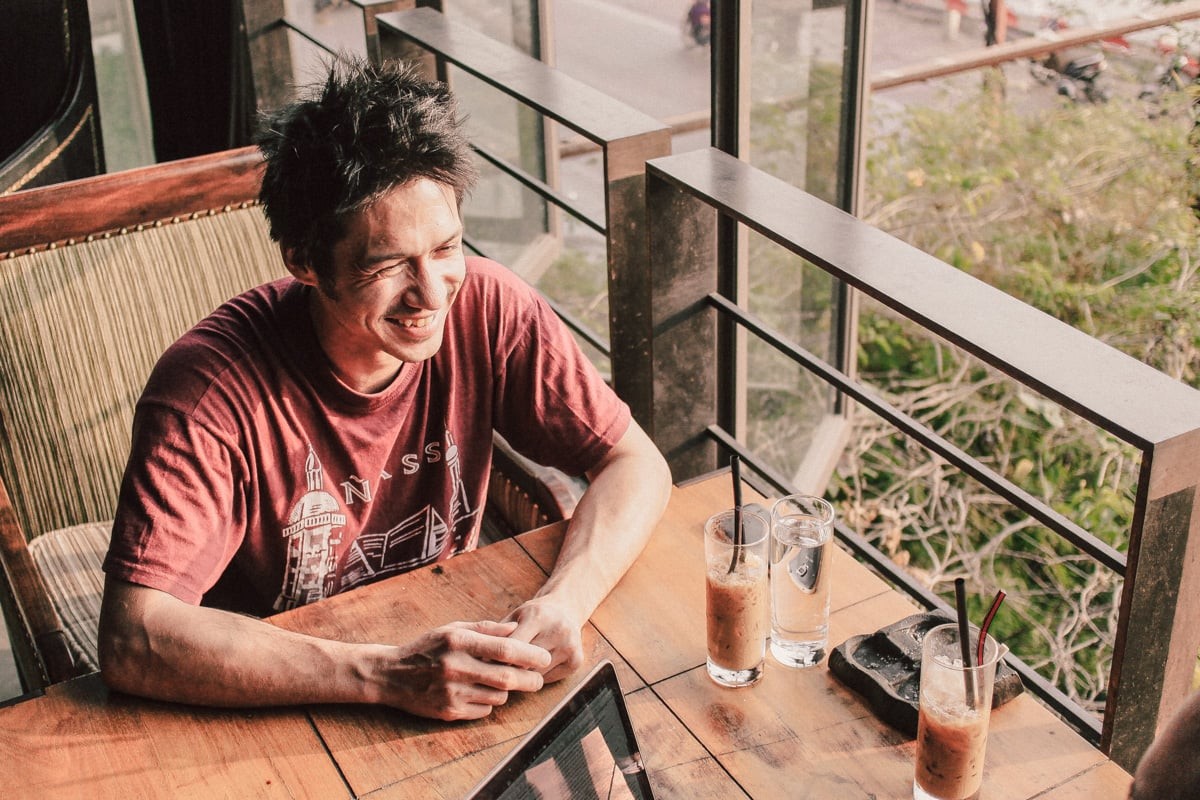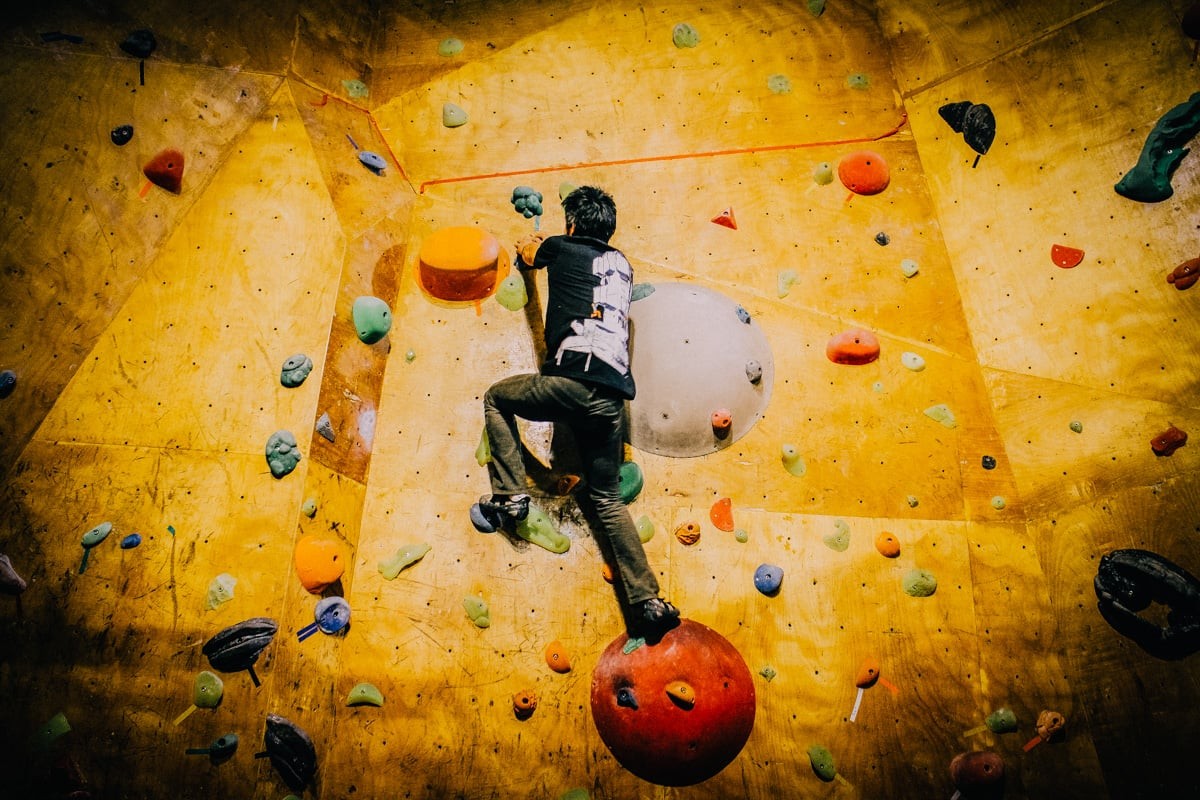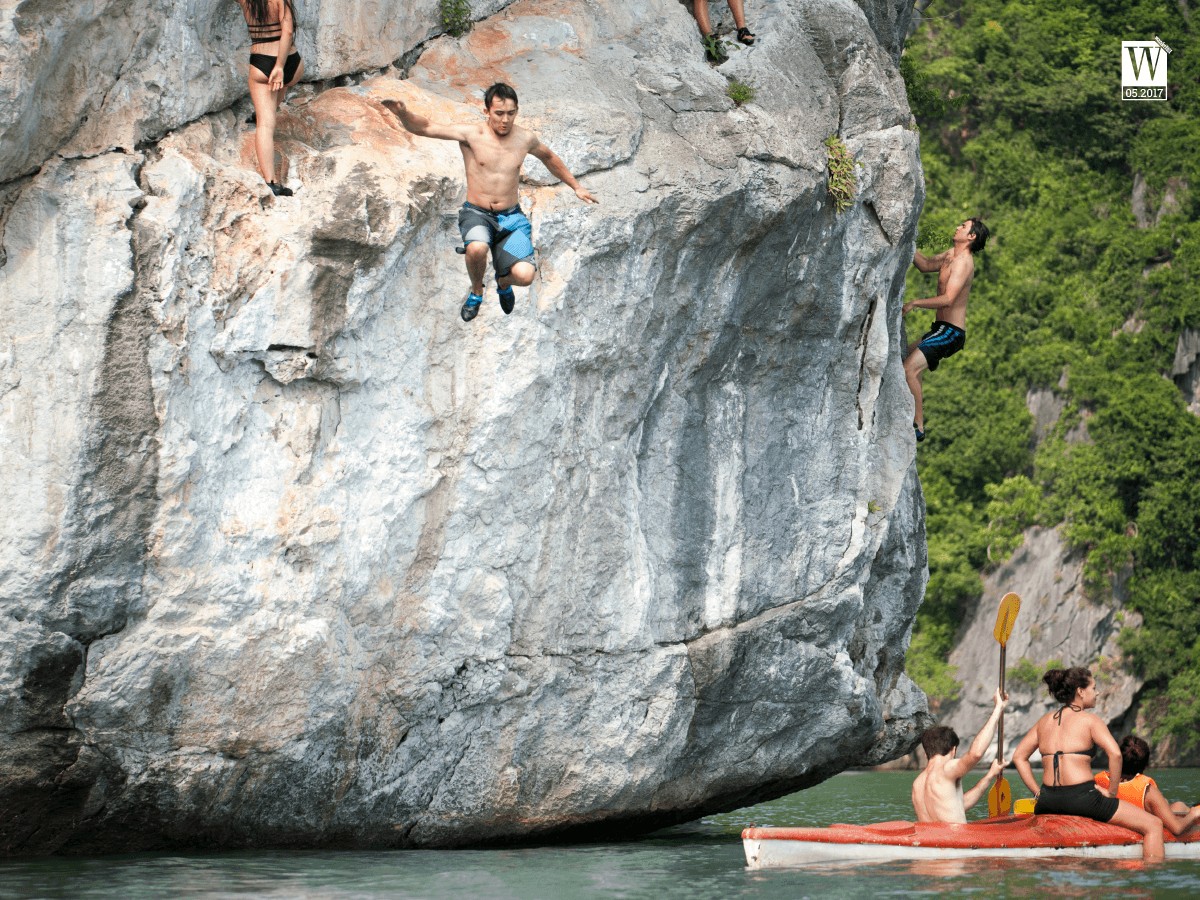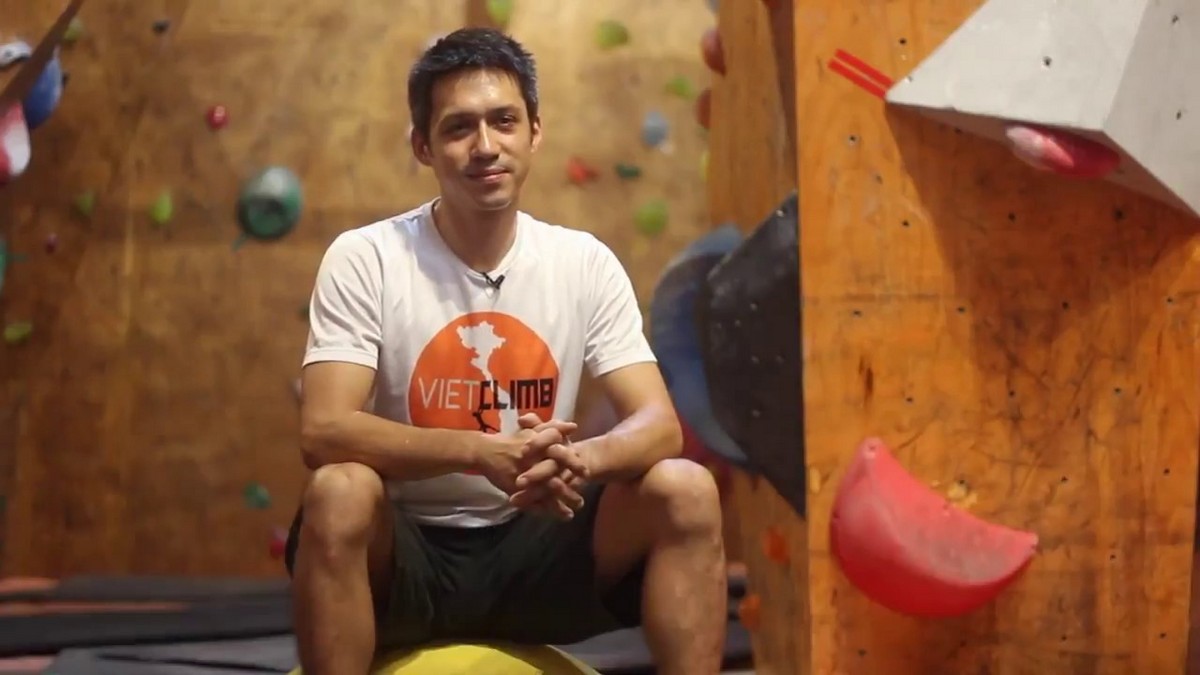Born in Paris in 1981, Jean Verly is a professional climber and the founder of VietClimb, a bouldering gym and climbing club based in Tay Ho, Hanoi. When he does not climb, run ultra trails or send e-mails, he likes to read inappropriate classic books, listen to quality electro, or follow emerging subcultures in Hanoi. Wanderlust Tips had a talk with this young but experienced rock climber to find out why he loves extreme sport so much.
[rpi]

Please tell us at what age you started climbing and why do you love this kind of sport?
I was 10 years old the first time I tried rock climbing during a youth field trip. From 10 to 21 I climbed with friends mostly during holidays in the Alps, the South of France and Fontainebleau. I quickly got stuck with this activity as I’ve liked the way climbing teaches you to challenge and control your body and your mind in a vertical dimension, while it brings you to some beautiful and remote places in the great outdoors. Indeed, cliffs and mountains are usually located in areas with difficult access, which preserves them from the environmental pressure usually brought by massive influxes of tourists.
Is it true that you conquered many mountains in France such as Mont Blanc, Baire des Eccrius, and Roche Codier at the age of 15?
France has a long mountaineering history and alpine tradition, so climbing these mountains at an altitude of more than 3,000 metres is nothing extraordinary, even for teenagers. The summits you mentioned (Rocher Cordier, Barre des Ecrins) are technically not difficult. A mind-set that doesn’t fear effort and sweat and a decent alpine guide are helpful.
What do you think about letting children be involved in sport activities at a young age as opposed to keeping them safe in parents’ arms?

I believe solid physical activities are necessary for a child’s development. They teach them resilience, autonomy, and give them tools to overcome challenges. I don’t think it’s related to safety as everyone knows that traffic is much more dangerous in Vietnam than any sports, it’s more about conservative attitude.
What do you think about letting children be involved in sport activities at a young age as opposed to keeping them safe in parents’ arms?
I believe solid physical activities are necessary for a child’s development. They teach them resilience, autonomy, and give them tools to overcome challenges. I don’t think it’s related to safety as everyone knows that traffic is much more dangerous in Vietnam than any sports, it’s more about conservative attitude.
Please tell us about the time and reasons of coming to Vietnam. Why did you come up with the idea of founding VietClimb?
Following my graduation in Comparative Literature at la Sorbonne then Business Management at Rouen, I visited Vietnam in 2005. I liked it so I decided to stay longer than planned. I started working in the public sector of the French Embassy, then switched to the private sector in an architecture and engineering company. In 2009,I felt a need to gain autonomy and direct impact of my daily work, so VietClimb got created with four main activities: bouldering gym, outdoor trips, climbing wall construction and work in high gear retail.
What difficulties have you had to face in the founding and operating of VietClimb?

When you create a market and put together a community, there are always highs and lows, megalomaniac moments alternating with depression. But at the end of the day, sport and health awareness keep developing.
As mentioned earlier, VietClimb has 4 main business lines. There is the bouldering gym located in An Duong (Tay Ho, Hanoi). Related to our construction line, we have done climbing walls for Vingroup, Ecopark or international schools such as BVIS. We organise outdoor trips also, and we import European climbing and work-at-heigh gear for sport or industrial purpose.
Beside macro-policy related difficulties such as poor infrastructure and foreign investment policies, indoor climbing in Hanoi is a very new activity which was unknown a few years ago. Most of foreign climbers rotate every 1 or 2 years so the half of the climbing community renews in shorter cycles than other countries. However, there is a growing core of Vietnamese climbers who are really committed and motivated.
How often does VietClimb organise outdoor climbing and where are the perfect outdoor spots for it in Vietnam?

We usually organise outdoor trip once or two weekends a month in two main destinations we have developed: Quoc Oai, located 25km from Hanoi to get familiar with sport route, top-rope and lead climbing and Huu Lung located 100km away which offers more than 60 quality routes and a few multi-pitch ones. In Summer, we do some boat trips in Cat Ba to escape the heat and practice deep-water soloing.
Deep-water soloing is considered an extreme sport. What is the necessary skill set for it?
Deep-water soloing (DWS) or psicobloc is a form of solo rock climbing that relies solely upon the presence of water at the base of a climb to protect against injury from falls from generally difficult routes. As with every outdoor activity, the most important thing is your ability to fix yourself a limit between your skills and the objective risks of such activities. For DWS, you need some basic climbing, swimming, paddling and jumping skills.
Besides climbing you love backpacking to the mountainous regions of Vietnam too. What are your regular destinations on such trips? Why do you love to travel to these places?
As mentioned, I like to travel to places where human activities are low. I like Ha Giang, Binh Thuan or Binh Dinh Provinces for example. Poor but very hospitable. I like mountain children because they have something especially interesting. I remember the anniversary of my first visit to Ha Giang. I had a great time with my friends and we brought little presents for the kids. We thought they would fight each other for it, but they were very friendly to each other. When we handed them the candy, they looked at each other and there was no need to tell them what to do they split everything evenly and we ate together.
Wanderlust Tips | Cinet

